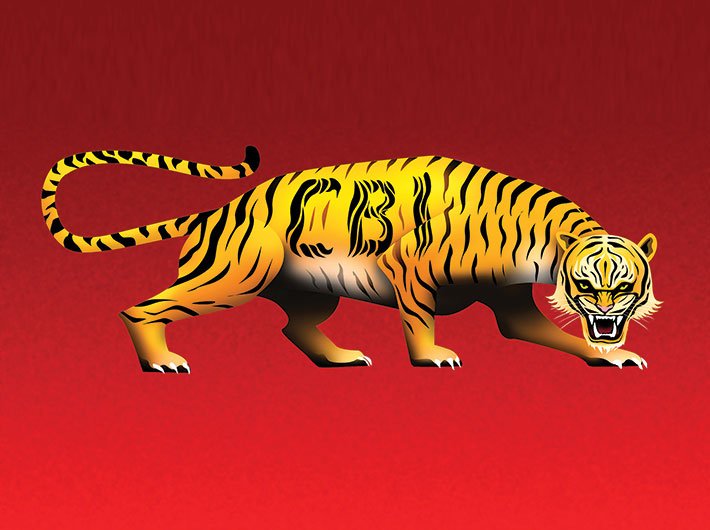Conviction or acquittal, opposition is as usual looking for PM's hand in everything
It is the story of the exoneration of A Raja and the conviction of a metaphorical raja (Lalu Prasad used to call himself a raja of Bihar) that reveals a complex web of governance in India.
Raja’s exoneration in the 2G scam was quickly followed by Lalu’s conviction in the fodder scam. Of course, in both cases, the respective CBI courts delivered verdicts which are conveniently and liberally interpreted by the accused.
But look at the manner in which Raja, Kanimozhi and their colleagues in the DMK are expressing jubilation over the court’s verdict and describing it as “triumph of the truth”. Quoting the verdict, they call the 2G scam nothing but a figment of imagination of some conspirators out to destroy the “impeccable” image of the UPA government. And who else could be the chief conspirator but the country’s prime minister Narendra Modi himself!
Now turn the story towards Ranchi where Lalu, after being convicted, discovered that he is in the league of “Nelson Mandela, Martin Luther King and BR Ambedkar”. He claimed himself to be on the side of truth and blamed the BJP and the Prime Minister for purveying falsehoods leading to his conviction. He also hints at a conspiracy of upper castes to corner him. And the lead role in this conspiracy is being played by none other than Modi himself.
A careful reading of CBI court additional sessions judge OP Saini’s verdict in the 2G case shows that he clearly blames the CBI and the Enforcement Directorate of carrying out a “shoddy investigations” and their inability to produce a shred of incriminating evidence to prove the existence of a scam. Obviously, the CBI’s investigation and its prosecution annoyed the court to extent that it found no merit in the claims of wrongdoings in 2G spectrum allocations.
Contrast this with Lalu’s case and one will find that the CBI has investigated the fodder scam in a meticulous manner and convinced the court to convict the prime accused, Lalu, on the basis of evidence. In both cases, there is one consistency in the arguments that the BJP in general and Modi in particular are out to destroy the reputation of their political adversaries. Along with this runs the theme of the CBI and the ED being used by the government to target the Opposition. If one goes by statements of Lalu, Raja and certain Congress leaders, it would appear that all institutions, including the judiciary, are mere puppets in the government’s hand.
Is there any iota of truth in these allegations? Apparently, in both cases facts are stranger than fiction. Right from the word go, both cases were strictly monitored by the Supreme Court. In the 2G case, much before the BJP came to power and could take it up, the Supreme Court clearly indicted the government and found fault with Raja’s indiscretion in tweaking the policies to favour certain individuals. The scam was investigated successively by two CBI chiefs - AP Singh and Ranjit Sinha – both considered very close to the Congress. While AP Singh’s proximity to Ahmed Patel was quite evident in the UPA’s tenure, Sinha was initially too close to the UPA regime but switched sides before 2014 Lok Sabha polls in anticipation of a change.
Particularly intriguing was the manner in which the Supreme Court enforced its decision on the CBI and the ED to retain a particular set of investigating officers (some with dubious credentials) and prosecutors to pursue the 2G case. Apparently neither the CBI nor the ED was given any latitude to choose investigators and determine the course of prosecution as everything came under the SC’s mandate which almost crippled the government’s role. The reality is that the government has let the agencies function as per the direction of the SC to proceed with the case. In effect, the CBI court’s judgment reads like an indictment of the SC which assumed for itself a role beyond the constitutional mandate and infringe on the executive’s domain.
Similarly in the fodder scam case, the meticulous investigation carried out by the CBI established Lalu’s culpability beyond doubt and led to his conviction. It is no secret that in UPA’s tenure, Lalu desperately tried to get rid of the fodder scam by employing all means, fair and foul. He approached the SC with a request to club together all cases related to the fodder scam in order to manipulate the situation in his favour. However, his adversaries in the court were vigilant enough to foil all his attempts. Given the history of the fodder case, it is quite evident that the investigation and prosecution were hardly ever tinkered with by the Modi government.
Then how does one interpret the allegation of over-centralisation of power in PMO or in Modi? Perhaps, the tale of prosecution of Raja and Lalu is quite revealing about Modi’s style of functioning. The manner in which Raja was let off the hook was a reflection of professional incompetence of the ED and the CBI. Similarly, Lalu’s conviction is indicative of professional hard work and competence of another set of officers from the same CBI. The PMO’s influence is completely absent in both the cases. This goes quite contrary to Modi’s image of being control-freak. Far from it, he appears to be guided by motivation far greater than implicating petty political criminals who would, in any case, meet their nemesis sooner than later.

